03:37
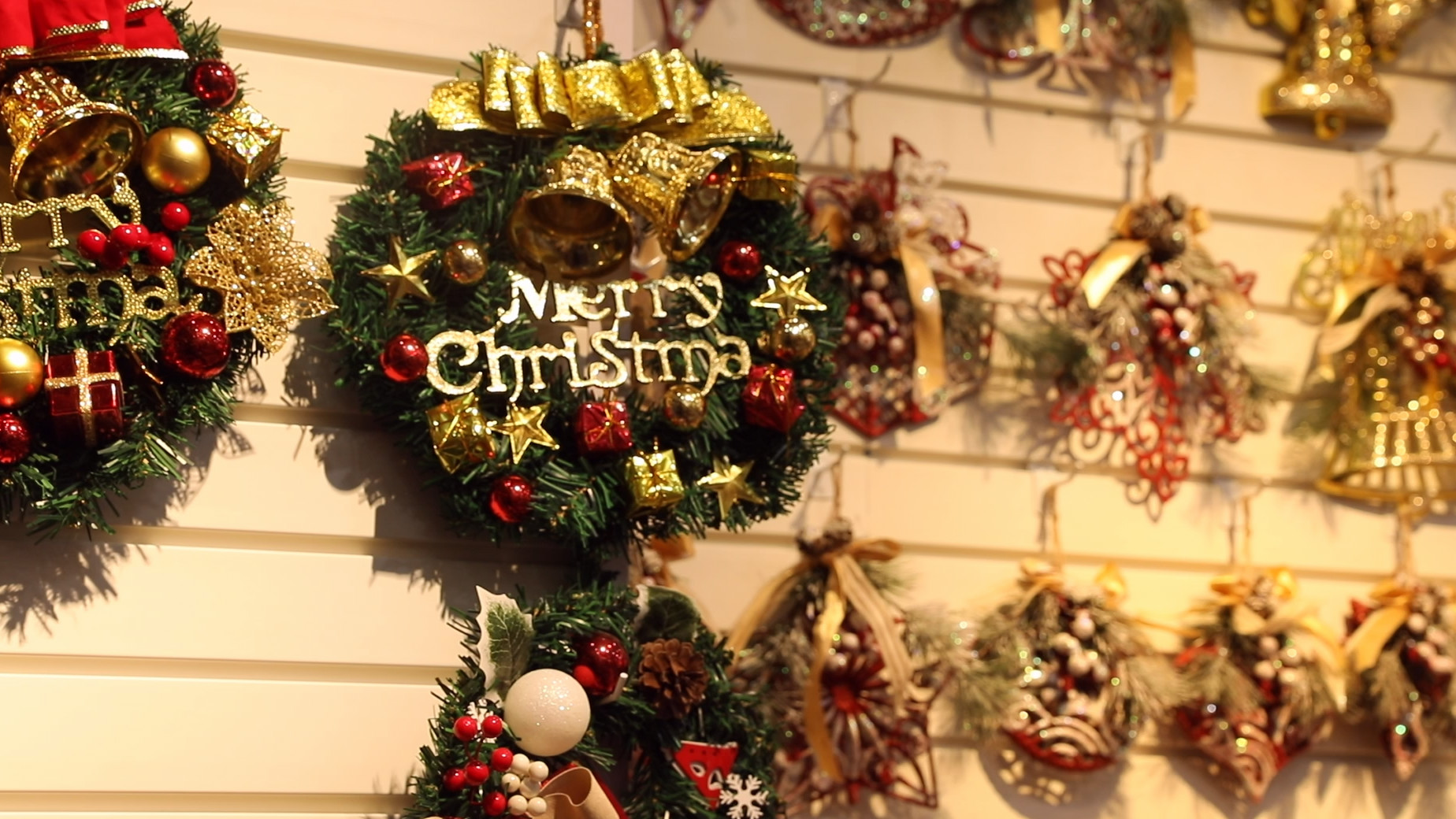
Wreaths, candles, ornaments and pine trees would fill the streets in the final days of December in Christmases past. But this year, everything is different as the COVID-19 pandemic continues unabated in many parts of the world. Meanwhile, Christmas decorations are lying on the ground of subdued malls in the east China city of Yiwu.
Widely known as the "supermarket of the world," the small city nestled in eastern Zhejiang Province is also called "China's Christmas village" since over 60 percent of Christmas products in the world originate here. Official statistics show that the exports of the city's Christmas gifts and toys sustained two-digit annual growth in previous years, accounting for nearly 80 percent of global Christmas supplies in 2019. However, the pandemic has disrupted this trend.
"Usually by the time of the year, our pine trees would have sailed across the Pacific to the U.S., Brazil and Chile among others," said Tao Chaojun, whose factory has been making Christmas trees for over a decade. "Usually our trees would fill more than 100 containers, each with a loadable volume of 68 cubic meters."
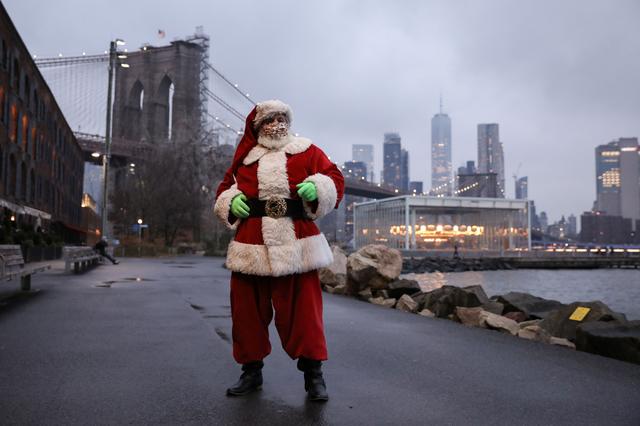
Christmas trees and wreaths are displayed in Tao Chaojun's store in one of the small commodities malls in Yiwu, eastern China's Zhejiang Province, November 3, 2020. Wang Xiaonan/CGTN
Christmas trees and wreaths are displayed in Tao Chaojun's store in one of the small commodities malls in Yiwu, eastern China's Zhejiang Province, November 3, 2020. Wang Xiaonan/CGTN
Tao's business has been brisk all these years because Yiwu has a complete supply industrial chain from warehouse to market. "I have approximately 30 factories around here that supply iron products, wires, strings, and all other materials for a Christmas tree."
Yiwu has over 600 factories specifically engaged in manufacturing and assembling Christmas accessories and toys. Every year many migrant workers would come to make these shiny, little things for this holiday season.
Coronavirus lockdown, travel restrictions, and falling demands made 2020 a difficult year for him. "Export used to make up 80-90 percent of our business, but now it's dropped by 30 percent," Tao told CGTN. There were no new buyers, while regular customers only ordered around 70 percent of their usual sum.
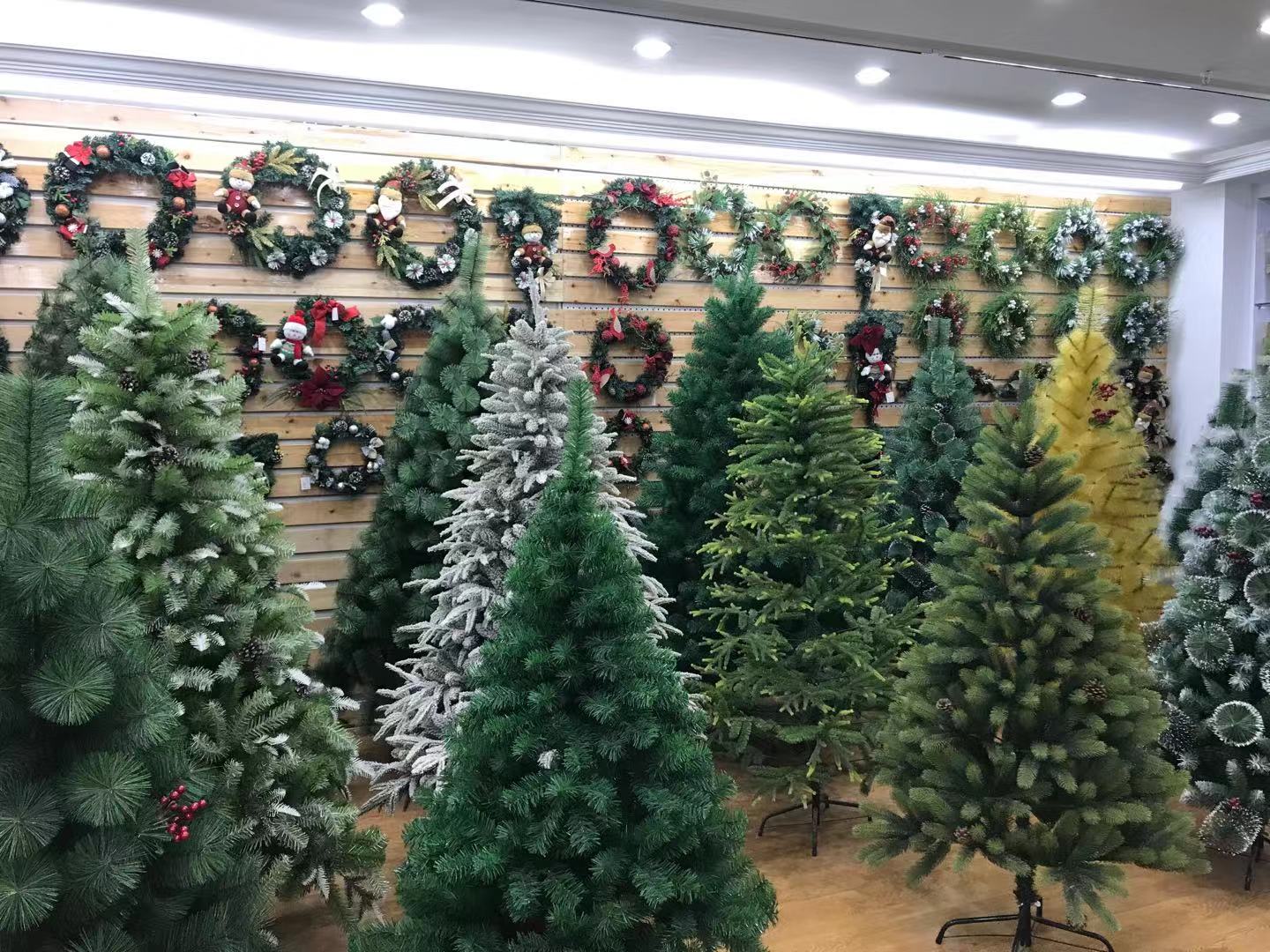
Christmas trees and wreaths are displayed in Tao Chaojun's store in one of the small commodities malls in Yiwu, eastern China's Zhejiang Province, November 3, 2020. Wang Xiaonan/CGTN
Christmas trees and wreaths are displayed in Tao Chaojun's store in one of the small commodities malls in Yiwu, eastern China's Zhejiang Province, November 3, 2020. Wang Xiaonan/CGTN
The situation is worse for Lou Lina, who owns a store across the lane in the mall. "This year we saw a slump of 50 to 60 percent in exports to the U.S.," said Luo, who runs the family business mainly selling Christmas ornaments such as reindeer antler headbands, Santa door hangers, plush snowmen, and floral arrangements. Her biggest buyer was U.S. supermarket giant Walmart, followed by other retail giants like Target and Kroger as well as small distributors.
"Unlike Christmas trees, these ornaments would go out of fashion by next year," she said with a look of concern. Overall, there's a 40-percent decline in exports as her clients, mostly from big U.S. and Indian cities, couldn't make trips here. She managed to keep in touch with old customers through WeChat, but as demand tanked, their orders were either as full as those of last year or were one-third of previous orders.
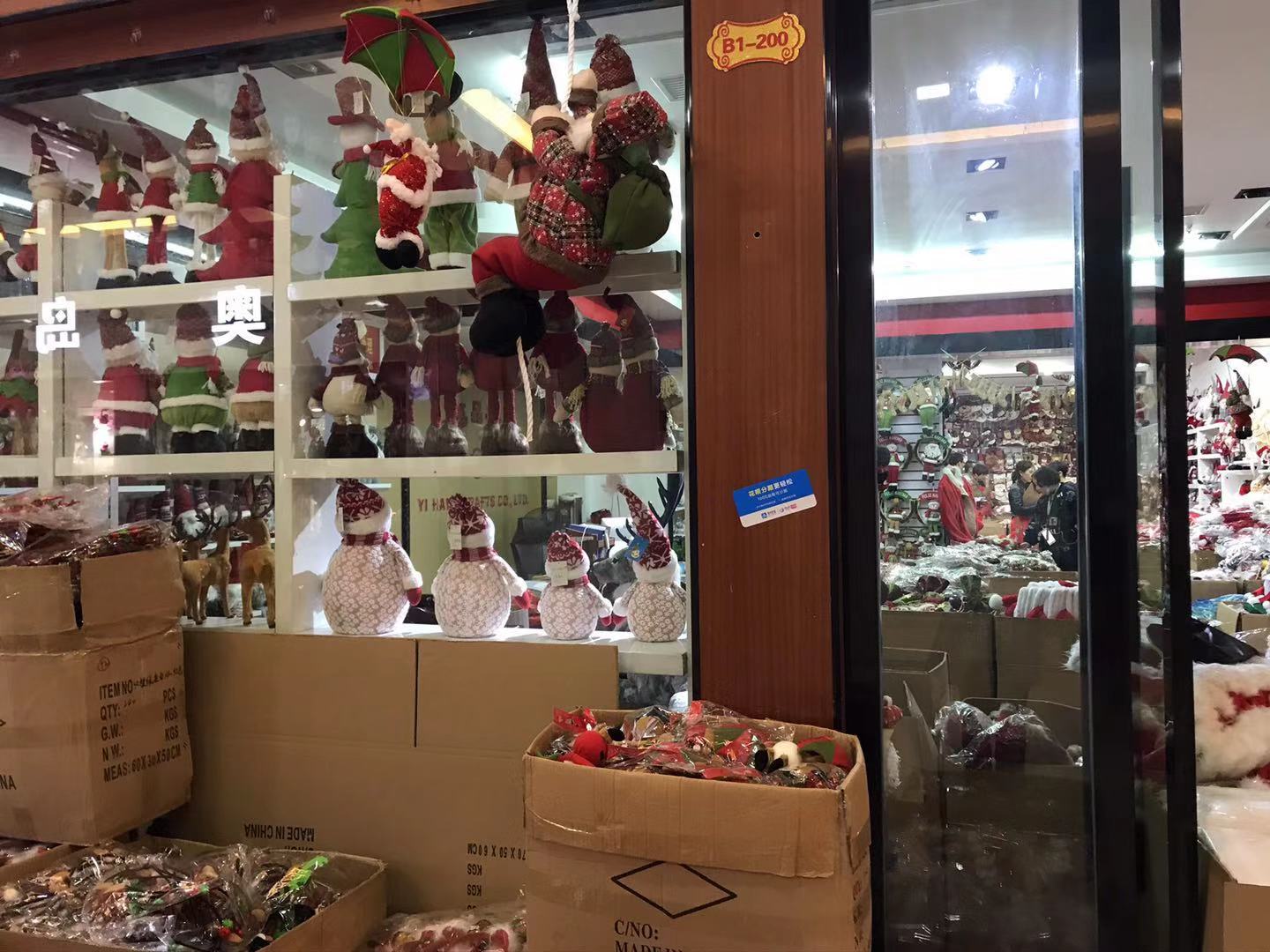
Christmas ornaments are displayed in Lou Lina's store in one of the small commodities malls in Yiwu, eastern China's Zhejiang Province, November 3, 2020. Wang Xiaonan/CGTN
Christmas ornaments are displayed in Lou Lina's store in one of the small commodities malls in Yiwu, eastern China's Zhejiang Province, November 3, 2020. Wang Xiaonan/CGTN
Yet suppliers and manufacturers in Yiwu are hopeful despite exports taking up the majority of the hub's production.
Suppliers remain optimistic, thinking that the end of the pandemic will see business come roaring back. They believe that overseas vendors and distributors still like Chinese products due to low prices, good designs, and consistent quality, and will come back once the pandemic subsides. "Christmas decorations are an inelastic demand for most Americans and people in other countries," Tao said, smiling.
They are also finding new ways to distribute their products, such as through e-commerce platforms like Alibaba and Amazon. For Lou, Amazon is currently the biggest buyer, though the orders made by the world's largest online retailer have dropped 10 percent year on year.
This optimism is characteristic of startups and those with an entrepreneurial mindset, both of which are abundant in Yiwu. Such scrappy attitudes have made this plain town what it is today and gives credence to local beliefs that slow business due to the pandemic is only a temporary setback.
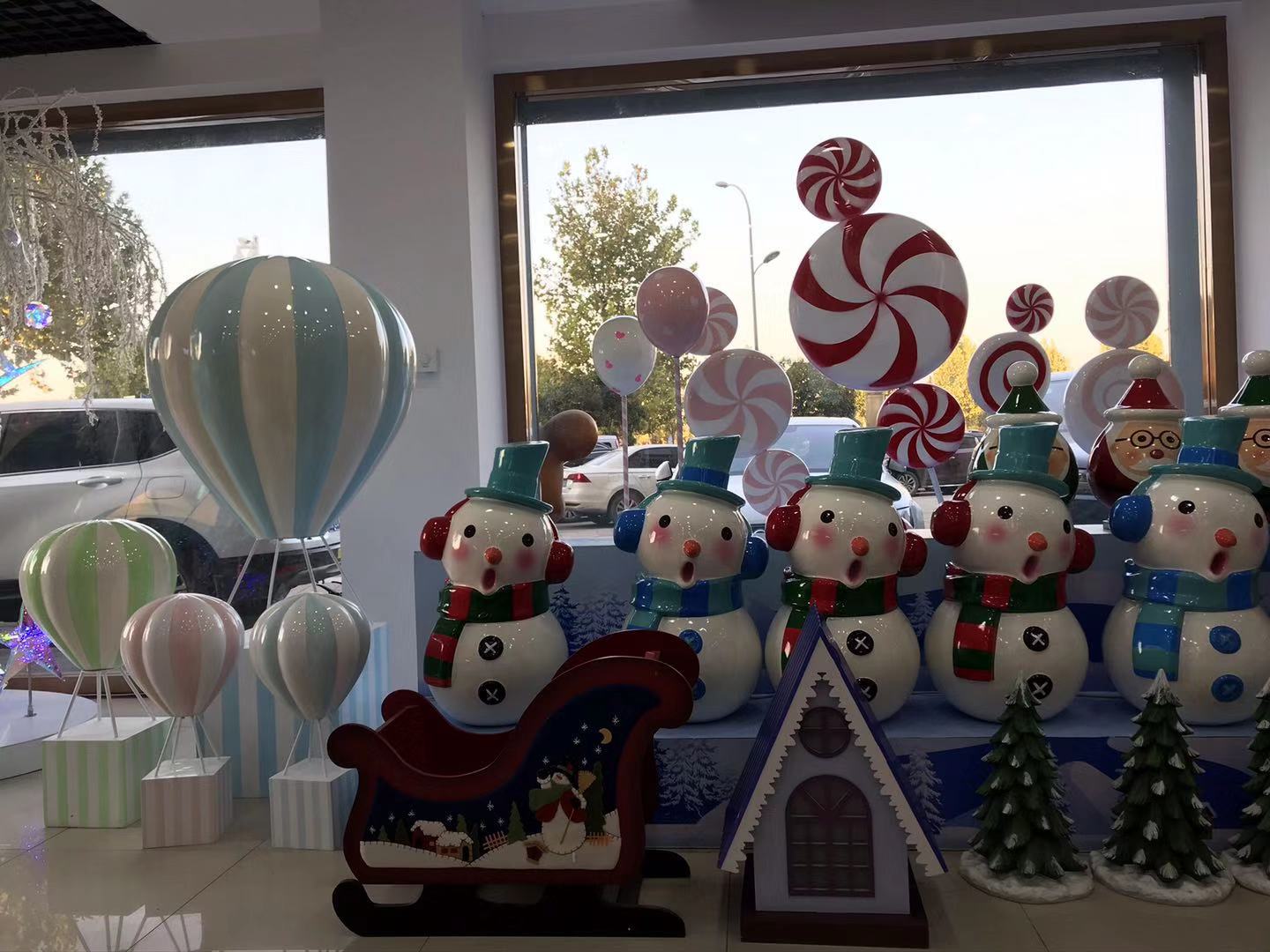
Products for the holiday season are put for window shopping at Yin Ruoxi's store in Yiwu, eastern China's Zhejiang Province, November 3, 2020. Wang Xiaonan/CGTN
Products for the holiday season are put for window shopping at Yin Ruoxi's store in Yiwu, eastern China's Zhejiang Province, November 3, 2020. Wang Xiaonan/CGTN
Yin Ruoxi arrived in Yiwu about 14 years ago to start a business. When he first started out, Yin was just like the others, investing heavily in manufacturing capabilities catering to a slower product cycle. Yet he discovered that designing the products in addition to making them was more lucrative, so he pivoted his company's focus, hiring a team of designers to develop what his firm was making instead of just manufacturing the blueprints from his clients.
While Yiwu is a manufacturing hub, companies like Yin's are moving up the value chain by shifting to designing and also manufacturing the products. His business philosophy is reflective of China's aspiration toward capturing the greater value of what they make. Nowadays, customers prefer original decorations and, in particular, those that are tailor-made for them rather than mass-produced standardized products.
He also notes that people now want higher quality and more environmentally-friendly products, so that's what his company has been focusing on. "We've turned to fire-retardant materials for most of our products," he told CGTN.
Yin's moves seem to be working. About 30 percent of his firm's products now go overseas to Europe, the U.S. and Russia.
Also, like other entrepreneurs, Yin uses e-commerce platforms such as Alibaba to push his new designs. It's also a good way to let repeat customers know the latest offerings from his company.
Though Christmas is usually a festive and busy season, the pandemic has disrupted this joyful occasion, among the many aspects of our lives. As businesses and people look for a return to normalcy after a tragic year, the Christmas hub of Yiwu is looking forward to business as usual, as soon as possible.
Video director: Zhang Rongyi
Article written by Wang Xiaonan
Voiceover: Zeng Ziyi
Guo Yi also contributed reporting.

